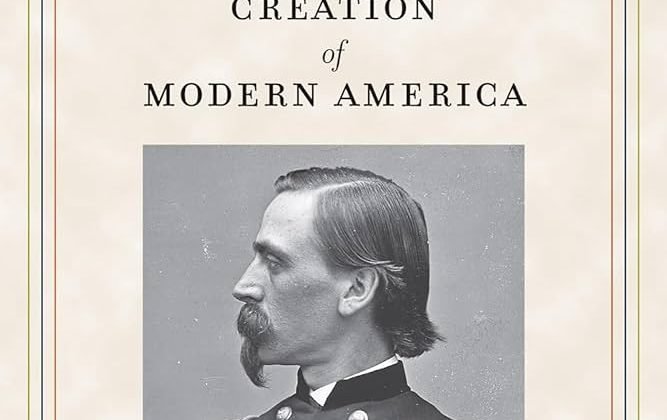

Michael J. Megelsh is Assistant Professor of History at Blue Mountain Christian University. This interview is based on his new book, Adelbert Ames, the Civil War, and the Creation of Modern America (The Kent State University Press, 2024).
JF: What led you to write Adelbert Ames, the Civil War, and the Creation of Modern America?
MM: Ames was a historical figure that routinely popped up in reports and sources, however, he lacked a modern biography (with the only previous work on his entire life being written by his daughter in the 1960s in response to a brief portion of John F. Kennedy’s Profiles in Courage, which promoted Lost Cause ideology). In short, Ames had a story worth telling.
JF: In 2 sentences, what is the argument of Adelbert Ames, the Civil War, and the Creation of Modern America?
MM: Ames was an integral part of both the Civil War and Reconstruction—his public career spanning the entire era. His life and legacy serves as a microcosm of the period, while his actions and decisions show his contributions to the Union’s preservation, the long civil rights movement, and the modernization of America through the nineteenth and twentieth centuries.
JF: Why do we need to read Adelbert Ames, the Civil War, and the Creation of Modern America?
MM: Besides being a gripping story that includes battles, adventures abroad, and a gunfight with Jesse James and his associates in Northfield, Minnesota, this work introduces a public figure whose actions contributed to Federal successes during the war and became a stalwart of civil rights afterwards. He was regularly at the intersection of pivotal moments during the Civil War. His tenure as a senator and governor of Mississippi highlights the rise of an optimistic future that was promised by Reconstruction. His downfall and impeachment driven by Redeemers and partisans, and the failures of Republicans in the North to care enough to stop the egregious lawlessness, epitomizes what went wrong with Reconstruction. This work also covers the challenges faced by freedmen, and it details the power the Ku Klux Klan had, as well as the dark heritage of the Democratic Party and its racial politics. My monograph also chronicles the rise of American imperialism, examines the debates regarding the Lost Cause and memory, and describes seismic shifts in American history through the lens of one person’s life.
JF: Why and when did you become an American historian?
MM: I became an American historian due to my primary interest in Colonial America and Nineteenth Century American history. Growing up in Pennsylvania, I routinely visited historic sites. Those experiences contributed to my interest in American history. The “why” I became an Americanist is simple, but significant. The story of the United States, and its legacy, matters. I want to learn about it and share what I have learned with others so that they can develop their own ideas and philosophies about the United States.
JF: What is your next project?
MM: I have two articles that are coming out in two separate journals within the next year, however, I have a manuscript currently with a press that looks at the naval apparatus of the Confederacy. It reexamines not just the Confederacy’s nautical exploits, but also looks at the legal hoops that both sides of the Civil War had to jump through. Hopefully, the outside readers approve of it!
JF: Thanks, Michael!